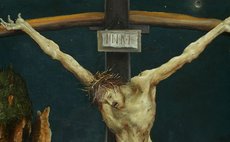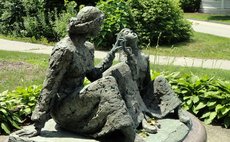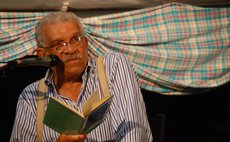A man of destiny
A shining light has appeared among us. It has shone most brightly on South Africa but it has shed its brilliant rays far and wide and has traversed the whole earth. It has brought a sense of peace and happiness to mankind and has given the world a sense of hope of a new day in history.
December 5, 2013, which marked the passing on of Nelson Mandela, was not a day of sadness. No, it was rather a day of pride. In the midst of callous inhumanity and brutal affliction, a man rose to heights of love, peace, justice and reconciliation, far above the current spate of violence and destruction, which has characterized the 20th century.
One of Nelson Mandela's greatest gifts to the world is that there is never any reason to give up or despair. A wealth of power is always available to anyone of goodwill. We should never underestimate what one man can do. We cannot over-estimate the power of anyone dedicated to the building of a just society.
Nelson Mandela, a lawyer by profession, was a man with uncommon optimism about the possibilities of life. His personality was very difficult to define. He was "an iron hand in a velvet glove." He had a strong will. Yet, he was full of compassion and understanding. Through him, South Africa has had a new birth. His spirit was well expressed in the new South African Constitution, "a need for understanding but not for vengeance, a need for reparation but not for retaliation, a need for brotherhood but not for victimization." One of the most revealing acts of forgiveness and reconciliation of Nelson Mandela was displayed on becoming the first Black President of South Africa in 1994. Judging by the standards of today's world, one would consider this incredible. In spite of the fact that the Security Service had warned him that a certain Afrikaner Major had helped to bomb a building owned by the African National Congress, of which Mandela was a member, Nelson Mandela retained him on his staff.
The initiation of the 'Truth and Reconciliation Commission', with Archbishop Desmond Tutu as chairman, was a remarkable event. Imagine Whites and Blacks, former sworn enemies, coming forward and laying bare to the world all the atrocities which their brutal minds had concocted! Some of the acts were so incredibly inhumane that Archbishop Tutu, on one occasion, virtually collapsed at the table. Only the spirit of forgiveness of Nelson Mandela could have produced that political miracle.
In the midst of human glory and political power, Mandela never departed from his close relationship with all South Africans, White or Black, rich or poor. He lived a very self-denying life. He lived simply. He gave a third of his salary as President to the Children's Fund, which was said to be his favourite charity.
Nelson Mandela spent 27 years in prison because of his participation in the liberation of his people from the cruel burdens of apartheid. Amidst all his trials, he remained a man of hope. He read and studied extensively. He encouraged those who were imprisoned with him. He was in every way a leader.
But what stands out most prominently in the life of Mandela was his ability to reconcile all factions of society. Among his own supporters in the African National Congress, some wanted an outright victory, which would have meant civil war and a bloodbath. The Whites, who only reluctantly gave up political power, had to be pacified. The military, the police, the judiciary, the various factions among the Blacks, the communists, trade unions, communications media, industrialists, businessmen, White public servants, professionals, all had to be brought on board. And this President Nelson Mandela succeeded in doing. No wonder that Mandela has been described as "the greatest politician of the 20th century".




